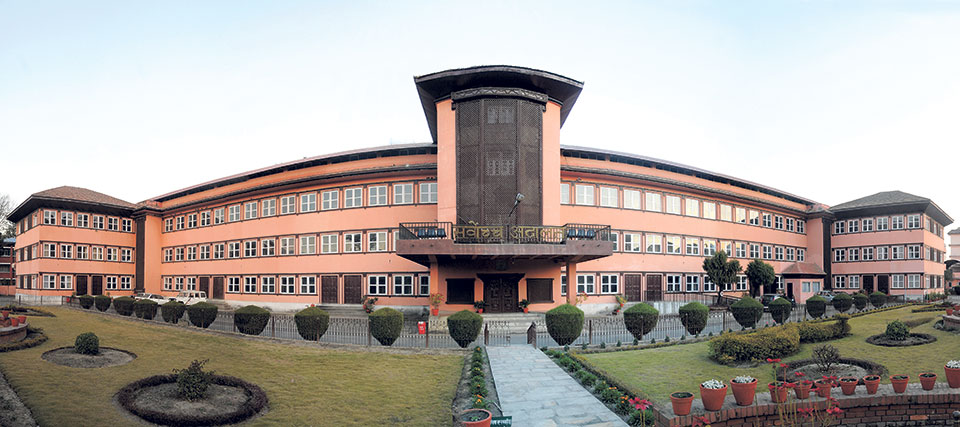KATHMANDU, Sept 5: The announcement of the verdict on the contempt of court case related to the audio of "Sidhakura" that was earlier scheduled for Thursday in the Supreme Court (SC) has been postponed to September 26.
A full bench comprising Chief Justice Bishwambhar Prasad Shrestha and Justices Prakashman Singh Raut, Sapana Pradhan Malla, Prakash Kumar Dhungana, Hariprasad Phuyal, Nahkul Subedi, Binod Sharma, Mahesh Sharma Paudel, and Balkrishna Dhakal was scheduled to pronounce the verdict on Thursday. The verdict, which was previously scheduled for August 22, had also been postponed.
Spokesperson of the Supreme Court, Achyut Kuinkel, informed that the judgment pronouncement date has been postponed so that the verdict, which was supposed to be delivered on Thursday, will now be delivered on September 26.
The SC had previously ordered that the audio provider, as well as the editors and publishers of “Sidhakura”, be present in court. The content in question, titled “Sting Operation of a Meeting with Supreme Court Judges Involving Dismissal of Over 400 Corruption Cases,” was uploaded and broadcast on the online and YouTube channel “Sidhakura” on April 22. The material was soon viral and broadcast and uploaded in a number of online media.
SC to deliver verdict on case against SidhaKura on August 22

Deputy Registrar of the SC, Govinda Prasad Ghimire filed a petition claiming that broadcasting misleading material to defame the judiciary was contempt of court. The SC had ordered the removal of the controversial material broadcast by “Sidhakura” within 24 hours.
Before the written order of the court, “Sidhakura” had already removed the controversial content it had broadcast. The SC had ordered a detailed investigation into the matter, including technical aspects. The SC also ordered the Inspector General of Police to initiate legal action in accordance with the law if the investigation reveals any violations of applicable criminal laws.
Article 17 (2) (a) of the Constitution guarantees every citizen the freedom of thought and expression. Although Article 19 ensures the right of media to publish audiovisual content, the Court has previously interpreted that such rights must be exercised in a manner that does not contradict public decency and morality, and does not constitute contempt of court.
It is mentioned in the previous order that the freedom of expression of an individual is not absolute in nature. “When publishing news articles or content related to the court, it is considered contempt of court if the publication of unverified, untrue, misleading, and unsubstantiated information harms the dignity of the court,” the order said.
It is noted that exercising the right to freedom of expression and communication is also subject to the minimum standards of professional ethics to avoid contempt of court.
The SC has determined that the allegations are against judges who were not present in the Constitutional Bench and legal professionals who were not involved in the argument and advocacy in the context of the verdict issued on April 21, 2021.
It is noted that procedural inconsistencies, such as altering the statements of government witnesses in the writ petition under consideration by the Constitutional Bench appear to be wrong at the first glance. The court has concluded that the material broadcast has created confusion and distrust towards the entire judicial system.
“It has been produced and broadcast in a deliberate, planned way with the aim of harming the dignity of the court and obstructing its work,” the verdict reads.



























-1200x560-1771928761.webp)









